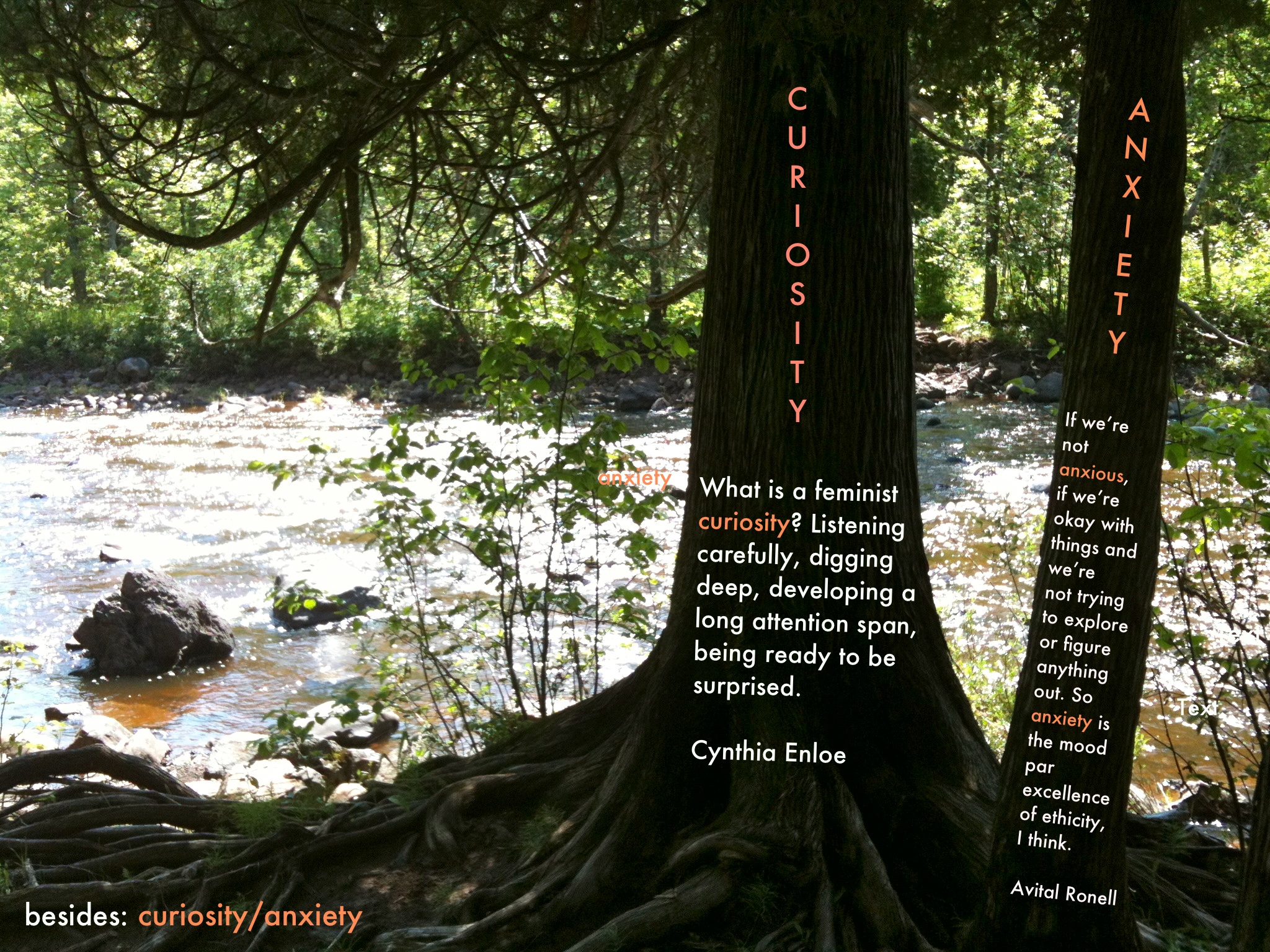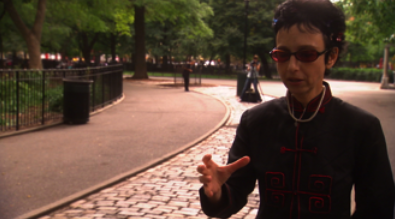In my continued efforts to experiment with my images and text on TUMBLR, I posted the following image; it’s from my recent trip with the family to the North Shore of Minnesota:
One of the goals of these images/text experiments is to inspire or provoke me and/or the viewer to think, question, wonder, reflect, or imagine. This particular set of texts, passages from Cynthia Enloe and Avital Ronell, has certainly inspired and provoked me. I’m:
thinking about anxiety and its role within ethics,
questioning its limits for self-care and moral selfhood,
wondering who should be encouraged to be anxious (Ronell suggests that George W. Bush could stand to be kept up at night a little more, thinking about the implications of his policies–her quote is a few years old) and who is already always too anxious (people prone to panic attacks or others, like me, who seem to worry too much about their impact on others),
reflecting on the relationship between curiosity and anxiety and what happens when your curiosity isn’t rooted in a concern–or anxiousness–about the impact of that curiosity
and imagining new possibilities for practicing a feminist curiosity that involves a willingness to trouble (feel some anxiety about?) one’s own questions and wonderings.
The passage from Avital Ronell comes from the documentary, An Examined Life. Here’s how I wrote about it an post from April 2010 (which, incidentally, is the link for the image on Tumblr):
She continues her discussion of anxiety, suggesting that the truly ethical person (which she contrasts with GW Bush) is one who is always anxious and always concerned with whether or not they are doing the right thing; the ethical person is the one who can’t sleep because they are uncertain about what they are doing or failing to do. The responsible being is not the one who does one good deed and then thinks that that makes them an ethical person. The responsible being is the one who thinks they have never done enough, that “they have never taken enough care of the other.” Wow–an ethics of anxiety seems similar to my idea of staying in trouble. I was particularly struck by how she connects this (only fleetingly) to the idea of care. Anxiety and trouble (being troubled, staying troubled) are central to being ethical responsibly and effectively caring for others. Cool. I like her discussion here. I am not sure I like how she describes it as anxiety (in the interview she indicates that she is not suggesting that we should all get anxiety disorders), however. Is anxiety the best (as in most productive, most rewarding, most hopeful, most sustainable) way in which to discuss this mood?
Originally my image was only going to include Ronell’s quote, but as I thought about the questions that I posted on my original blog entry about an ethics of anxiety, I decided to contrast the promotion of anxiety, as the ethical (troubled) state par excellence, with my preferred troubled state of curiosity. So, I put Ronell’s passage beside a passage from Cynthia Enloe on feminist curiosity, on the two trees.
I really liked how it turned out; in some ways, it visually represents the relationship I imagine between curiosity and anxiety for myself. As the more important state, curiosity is on the bigger tree. But, because my curiosity always need to be troubled (questioned for its limits and effects), anxiety, in the form of concern, care and caution, is also always beside that curiosity, on the smaller tree.
There are so many ways that I want to talk about the tension between curiosity (as wonder, joy, the creative) and anxiety (as worry, concern, the critical). And there are so many ways that I’ve already discussed it on this blog. Pondering states and moods (and feelings), makes me want to put curiosity and anxiety into conversation (BESIDE/S) with a few other sources:
1. Eve Sedgwick’s discussion of paranoid and reparative reading (and maybe E Spelman’s ethics of care/repair too)
2. Megan Boler’s pedagogy of discomfort
3. Michael Snediker’s Queer Optimism
By the way, in the process of thinking through the image + texts and this post, I’ve come up with a name for my image/text posters: Problematizers. It’s inspired by Michel Foucault and his politics of problematization.



